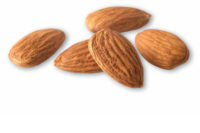Calorie Control Council Finds Limitations in Study
The council contends that the use of low calorie sweeteners in weight management has been shown to be beneficial

According to Calorie Control Council, the recent study "Diet Soda Intake Is Associated with Long-Term Increases in Waist Circumference in a Biethnic Cohort of Older Adults: The San Antonio Longitudinal Study of Aging (SALSA)" contains limitations.
• The authors note that the waist circumference (abdominal fat) findings were not significant.
• As men and women age they lose muscle mass, and typically there is an increase in abdominal fat (which is measured by waist circumference).
• This study cannot show cause and effect, but instead only indicates a possible association.
• The study was not designed to evaluate the relationship between diet soda consumers and non-consumers in all subgroups, limiting the conclusions that can be made.
• Without information regarding dietary or calorie intake, the implications of these results are limited.
In the study of Mexican-American and European-American individuals aged 65 and older, "a significant amount of important data was missing including diet records, family history, cultural differences and lifestyle, which are critical when studying Hispanics who usually continue to eat large portions yet become more sedentary as they become older," said Sylvia Melendez Klinger, MS, RDN, LDN, CPT and scientific advisor to the Calorie Control Council.
The use of low calorie sweeteners (LCSs) in weight management has been shown to be beneficial. Dr. James O. Hill, a recognized obesity expert, said in the American Journal of Clinical Nutrition (AJCN), 2014, "In randomized controlled trials (RCTs), the use of LCSs is associated with lower body weight, BMI, and waist circumference. In prospective cohort studies, the use of LCSs is associated with less weight gain but a slightly greater BMI. Clear evidence that the use of LCSs helps — not hurts — in weight management."
Previous research has shown that individuals consuming diet products have a healthier lifestyle and that many individuals consume diet products as an effective way to reduce calorie intake. Diet soda consumers in this study also tended to have increased physical activity as estimated by leisure-time energy expenditure. While approaches to treat obesity in older individuals is controversial, diet modifications can be a successful part of a weight management program for older adults.
Looking for a reprint of this article?
From high-res PDFs to custom plaques, order your copy today!








